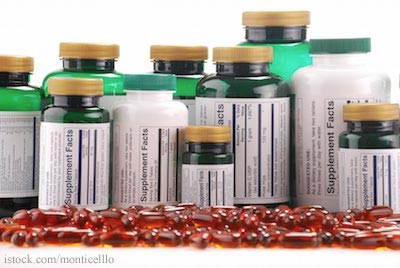The CEO of the Natural Products Association (NPA) is questioning the testing methods used in the New York Attorney General’s probe of herbal supplements. Show us the data, he says.
 Last week, New York Attorney General Eric T. Schneiderman sent cease and desist letters to GNC, Target, Walmart, and Walgreens after tests on their store brand herbal supplements tests showed most did not contain the contain plant species identified on the label. And some contained contaminants not identified on product labels.
Last week, New York Attorney General Eric T. Schneiderman sent cease and desist letters to GNC, Target, Walmart, and Walgreens after tests on their store brand herbal supplements tests showed most did not contain the contain plant species identified on the label. And some contained contaminants not identified on product labels.
Because supplements do not have to undergo a premarket evaluation by the U.S. Food and Drug Administration (FDA) before they are sold, manufacturers are responsible for ensuring that their products are safe and accurately labeled. Undeclared ingredients can interfere with prescription drugs and complicate existing medical conditions. The FDA has received dozens of reports of associated with dietary supplements sold as weight loss products, including increased blood pressure, racing heart, stroke, seizure and death. About 20 percent of drug-related liver injuries are from mislabeled supplements.
Schneiderman’s office said in a press release last week that 79 percent of store brand herbal supplements sold at Target, Walmart, Walgreens and GNC did not contain plant species identified on the label.
“The DNA test results seem to confirm long-standing questions about the herbal supplement industry. Mislabeling, contamination, and false advertising are illegal. They also pose unacceptable risks to New York families—especially those with allergies to hidden ingredients. At the end of the day, American corporations must step up to the plate and ensure that their customers are getting what they pay for, especially when it involves promises of good health,” said Schneiderman.
But the NPA CEO Daniel Fabricant, Ph.D., and former director of the Division of Dietary Supplement Programs at the Food and Drug Administration (FDA), says Schnedierman should make the details of the tests public and that botantical extracts are unlikely to contain intact DNA. “Therefore, if the study is using the wrong tool, that hardly seems newsworthy or beneficial for consumers,” he said.
“What’s interesting is that in keeping with the federal regulations for dietary supplements, ingredient identity testing is a requirement, as are the use of reference materials to establish identity, so it’s peculiar that a study to evaluate quality isn’t consistent with parameters of what’s required by the federal regulations for quality. Also, per these same regulations, manufacturers are given flexibility in testing decisions, and may or may not choose to use DNA barcoding, as it may or may not always be appropriate. Nevertheless, they have requirements on testing for identity that are required by law, and if those requirements aren’t met, the government can and does take action, ensuring consumer protection is in place. Thus, it is unclear as to why the New York Attorney General is making this request,” said Fabricant.




